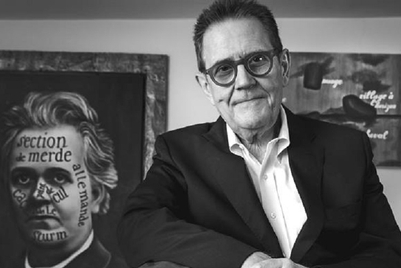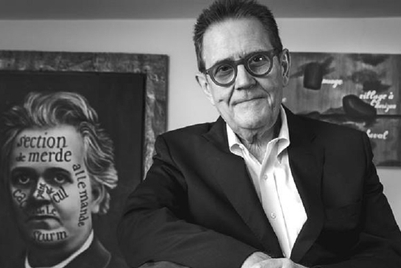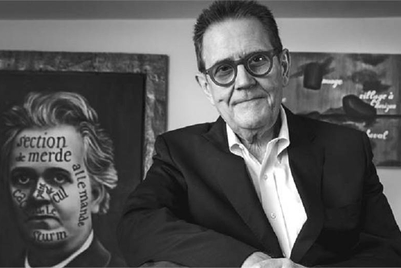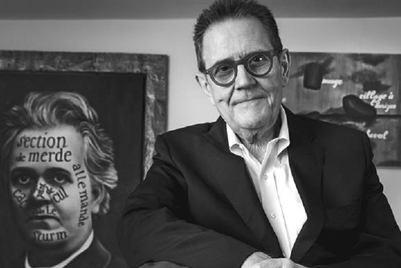
People misquote Maurice Saatchi: "It’s not enough for me to win, someone has to lose."
That sounds like bragging: greed and ego.
It’s inaccurate and unhelpful.
Maurice’s actual quote is much more useful: "I don’t have to win, I just have to make you lose."
This is a summation of creative competitiveness.
Everything from warfare to sport, from marketing to pitching.
Put simply, if I can reduce it to two options and I remove the other option, I must win by default.
This was demonstrated in the 2000 Olympics.
The Laser class is small, fast, single-handed sailboats.
The best in the world was a Brazilian, Robert Scheidt.
The second best was an Englishman, Ben Ainslie.
Contestants would only be judged on their best nine out of 11 races.
Going into the final race, Scheidt needed to finish above 20th, out of 45 boats, to win the gold.
Whereas Ainslie would need to beat Scheidt by ten places to win the gold.
Ainslie knew he couldn’t do that.
So he didn’t try to win.
He decided to make Scheidt lose.
In sailing, whoever controls the wind controls the opposition.
So that’s exactly what Ainslie spent the entire race doing.
Ignoring all the other boats and making sure he stayed between Scheidt and the wind.
Forcing Scheidt to sail slower than anyone else.
Ainslie could afford it because only his nine best races would count.
He could sacrifice this one.
Finishing above 20th should have been easy for Scheidt, the best in the world.
Except Ainslie decided it wouldn’t be easy.
Ainslie’s whole concentration was on pushing Scheidt’s boat to the back of the race.
He stuck to it like glue – it couldn’t make a move without him because he controlled the wind.
And the whole race for Ainslie consisted of slowing Scheidt down.
When Scheidt tacked, Ainslie tacked: an unheard of 54 times.
He stayed between him and the wind – Scheidt couldn’t get past.
And at the finish, Robert Scheidt was 22nd.
Scheidt won the silver medal.
Ben Ainslie won the gold.
By making the best in the world lose.
Ainslie’s win was unpopular – Sir Roger Bannister said it was unsporting.
In Rio de Janeiro, effigies of Ainslie were burnt in the street.
He even received death threats.
But Ainslie knew the job wasn’t to prove he was the better sailor.
The job was to finish with more points than Scheidt.
Or to make Scheidt finish with fewer points than him.
So he turned the game around.
In a two-way race, you have to go faster than the other guy or make him go slower than you.
Either way, you win by default.
Just the way you would win in a pitch.
Just the way Volkswagen did against Detroit.
Just the way Pepsi did against Coke.
Just the way Apple did against PCs.
Just the way Hillary Clinton hopes to do against Donald Trump.
You don’t have to win, you just have to make the other guy lose.
(Dave Trott is the author of Creative Mischief, Predatory Thinking and One Plus One Equals Three. This article first appeared on CampaignLive.co.uk.)


.jpg&h=334&w=500&q=100&v=20250320&c=1)
.jpg&h=334&w=500&q=100&v=20250320&c=1)

.jpg&h=334&w=500&q=100&v=20250320&c=1)
.jpg&h=334&w=500&q=100&v=20250320&c=1)
.jpg&h=334&w=500&q=100&v=20250320&c=1)
.jpg&h=334&w=500&q=100&v=20250320&c=1)

.jpg&h=334&w=500&q=100&v=20250320&c=1)





.jpg&h=268&w=401&q=100&v=20250320&c=1)
.jpg&h=268&w=401&q=100&v=20250320&c=1)
.jpg&h=268&w=401&q=100&v=20250320&c=1)
.jpg&h=268&w=401&q=100&v=20250320&c=1)
